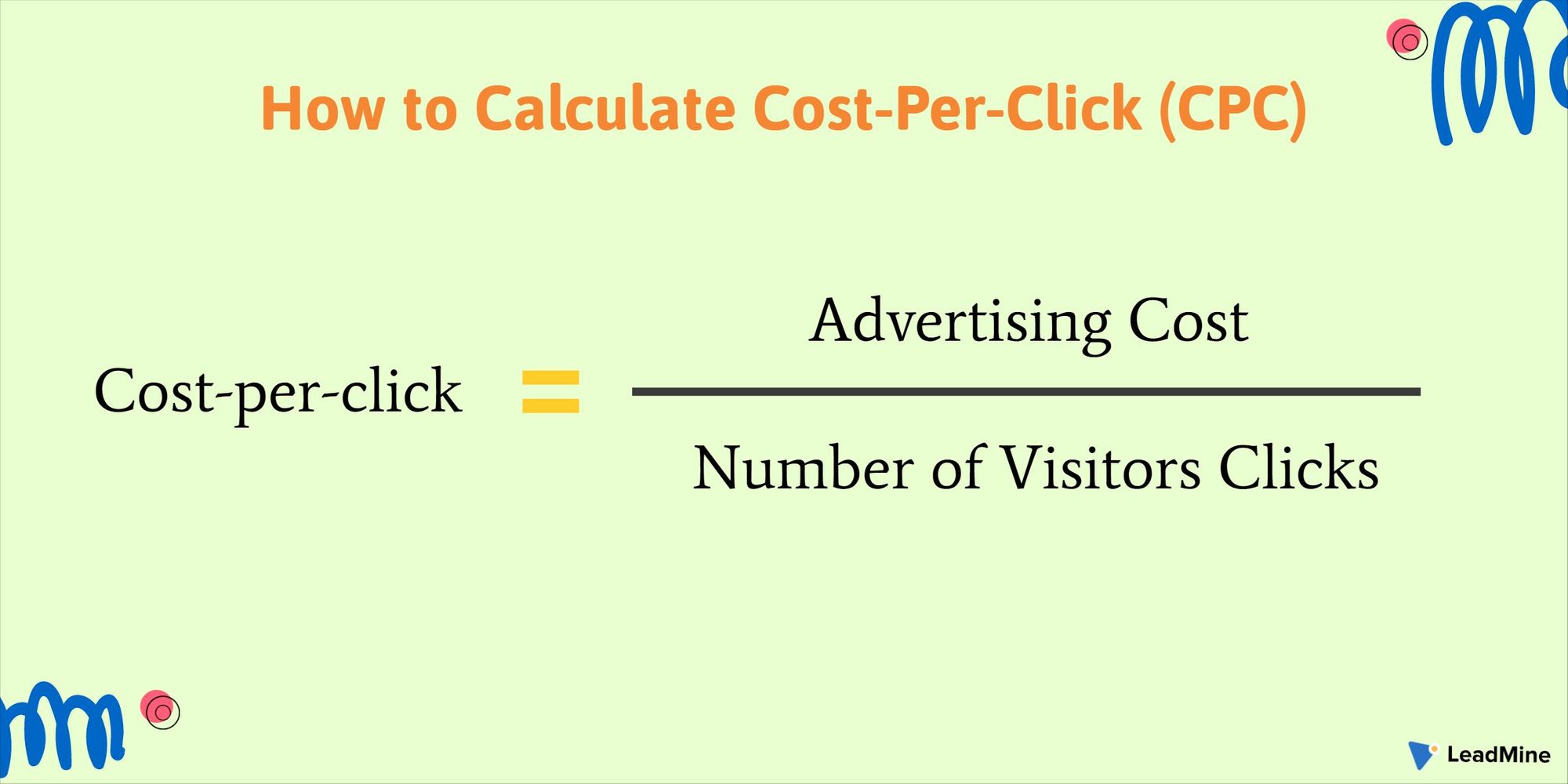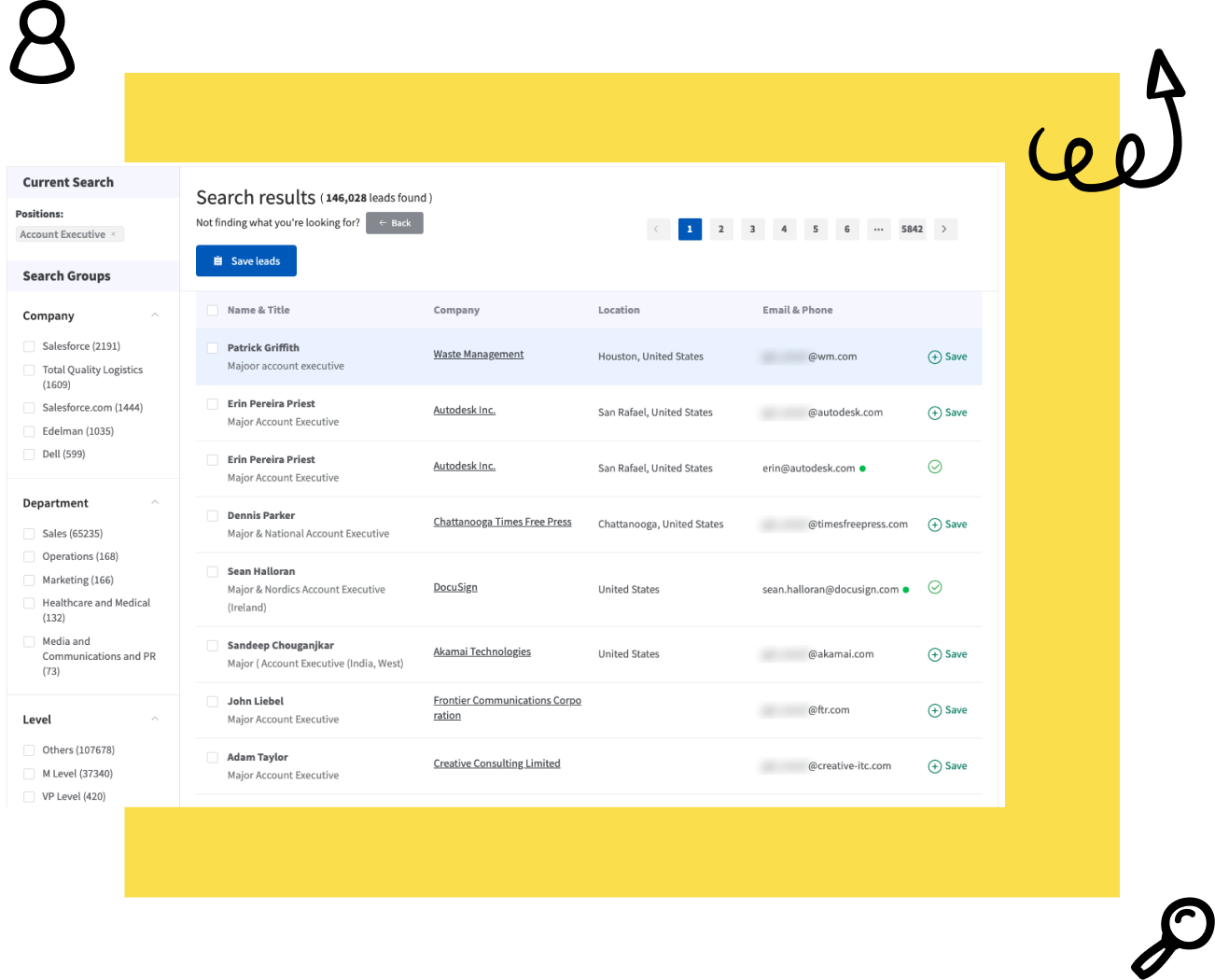Here we will cover the followings:
- What is Cost-Per-Click?
- How to Calculate CPC?
- Factors that Affect CPC
- Advantage and Disadvantage of CPC
- Why Cost-Per-Click is Important?
What is Cost-Per-Click? 🖱️
Cost-per-click (CPC) is a procedure where websites use to calculate a bill based on the number of times a visitor clicks on an advertisement. It is also known as pay-per-click (PPC). There is also an alternative to CPC is CPM (cost per mille) that refers to the number of impressions in thousands and doesn’t take into account whether a visitor actually clicked on the advertisement or not.
CPC is the cost your company will pay to search engines (Bing Ads or Google AdWords) for showing your business ads on their results pages. That means CPC is basically a search engine’s income. It is commonly used when business marketers and advertisers have a set of daily budgets for advertisements.
When the budget meets the level, the ad will be removed from the search engine results page for the remainder of the billing period. When you creating a marketing campaign, including this method can lead to more traffic to your company website considerably.
You only have to pay for the advertisement if it gets clicked by potential customers. If your ad only receives views but not get clicked then you won’t need to make a payment. Because of this concept, you can rework your ads so that they can be more eye-catching and likely to garner clicks.
How to Calculate CPC? 🙄
Cost-per-click (CPC) is calculated by dividing the advertising cost by the number of visitor clicks generated by an advertisement. The formula is simple as it sounds:

There are two primary methods to determining pay-per-click:
- Flat-rate PPC
- Bid-based PPC
In both methods, the advertiser must consider the potential customer’s clicks from a given source. This value is based on the type of individual the advertiser is expecting to click the ad as a visitor to their website, and the advertiser can gain from that visit which is usually unpredictable revenue.
In other types of advertising, targeting is crucial, and factors that implement into PPC campaigns include the target’s interest (get into a page that they are browsing), intent (decision about the purchase), location (geo-targeting), and the day and time that they are browsing.
Flat-rate PPC 🎯
In flat-rate PPC, both the advertiser and publisher agree on a fixed amount that will be paid for each click on the ad. Sometimes, the publisher has a rate card that lists the pay-per-click within various areas of their network or website. The amount gets various which is related to the content on pages, which means the content that generally attracts more valuable visitors having a higher PPC than content that attracts fewer valuable visitors. Although, advertisers can negotiate lower rates, especially when comes to the long-term relationship.
The flat-rate PPC is common to comparison shopping engines that publish rate cards. These sites are usually perfectly compartmentalized into product or service categories to allow a high degree of targeting by advertisers. In this case, the entire content of the site is paid ads.
Bid-based PPC 📈
The advertiser signs a contract that allows them to compete in a private auction with others hosted by a publisher or an advertising network. An advertiser should inform the web host of the maximum amount that they are willing to pay for a spot. The auction plays out in an automated structure every time a visitor triggers the ad spot.
When the ad spot is available on a search engine results page, the automated auction starts whenever a search for the keyword is being bid. All bids for the keyword that target the user’s geolocation, content, intent, etc. are compared and the winner determined.
Advertisers pay for every single click they receive and have to pay the actual amount paid based on the amount of bid. It is common practice amongst auction hosts to charge a winning bidder more than the next highest bidder.
Factors that Affect CPC 🤕
The CPC is dependent upon many factors and the cost of a click can vary from a few cents up to double-digit amounts. Here are the aspects determine the CPC for advertisers:
- Quality of the website on which the advertisement appears (portals with wide coverage or small websites)
- Type of advertising medium used (banner clicks or text clicks)
- Ad position on the website (subpage or home page)
- The competitors count and the level of their bids also affect the CPC
- Advertised in which sector (financial or wealth sector)
- Amount of booked advertising (large volumes or small ones)
For publishers, the CPC depends on some factors:
- Quality of the website
- Click-through rate on the website
- Platform coverage
- Relevance in the website to offer promotional materials.
So the CPC can be determined both by advertisers and publishers.
Advantage and Disadvantage of CPC 🎭
CPC can be easily determined using log analysis, where the billing can be used by each website. It provides a solid scalable quantity in the calculation of advertising budgets, charging customers for the exact number of times their ad was actually perceived by users.
A disadvantage of the CPC is that clicks can be generated very easily and advertisers can be swindled. You can also be charged for CPC when a user clicks continuously on the same ad within an advertising network or in a search engine. That explains costs are no longer controllable and advertising budgets are quickly depleted.
Why Cost-Per-Click is Important? 🙄
Cost per click is the interface between you and your advertising platform. Both should get as much out of the exchange as possible, but the success or failure of your campaigns can’t measure by the price of a click.

It is always a good idea to keep an eye on the cost-per-click of your campaigns, your CPCs will ultimately be more of a reflection of how much the platform likes your ads and what sort of your competition you are facing than a true measure of advertising success.
Summary
Hope you have a good feel for what cost-per-click is, where it comes from and what it means to your business. Even though CPC is an important part of PPC advertising, it certainly isn’t the beginning and end of online marketing.
LeadMine : Find Your Next Customer without Wasting Time
LeadMine is a lead generation platform used by all types of businesses. From over 200 million contacts, you may identify your target b2b leads as well as their email addresses.

LeadMine is an extremely simple and handy application that can improve your marketing and sales processes. Its user-friendly interface, strong algorithms, real-time data, and email verification features save time that can be better spent on other tasks. The rich API solution can also check hundreds of email addresses in less than a minute. The powerful yet easy solution might be your ideal marketing and sales partner, helping your business grow.





